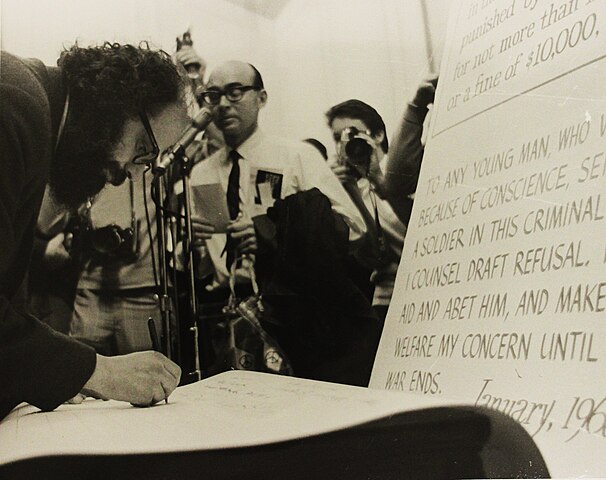Not that long ago, when writing on a blog, we had just a few chintzy blocks to work with. Similarly, we had our own dictionary/reference material nearby in order to guide us through our writing. Now, we have a variety of AI tools at our disposal to help us complete our daily writing tasks and so on. While exciting, the prospect of writing with a robot helper is a little alarming. That is to say, what are the pros and cons of AI in writing?
Do we need an improved title? Well, just look at the one it came up with at the top of the page! Do we need feedback on a post that we are ready to publish? Certainly, here ya’ go! It can even come up with images that are all-too-fitting for what you need (in this case, a robot typing).
Nevertheless, there is a nagging feeling inside of me that there is something awfully rotten in Denmark. Using AI to write just seems too convenient. Dark, lingering conspiracy is always just around the corner. In this post, we are going to examine the pros and cons of AI in writing.
The Pros of AI in Writing
I think in using AI, one needs to use it tactfully. What does that mean? As writers, we have a lot going against us. For instance, the writing myths that bind us by our hands and feet keep us from completing the one action we need to complete: writing.
Additionally, threshold concepts are large, looming lighthouses in the distance we must reach to pull ourselves out of the dark to be successful. For example, understanding that writing is a process is important. It’s not really a one and done sort of deal is easy to understand but hard to master. Moreover, people are not born writers, therefore writing is a gradual discipline that is created through prior experience.
The above problems should hopefully illustrate the difficulties in writing. Thus, it shows us why AI might be a boon when it comes to getting the job done. That is to say, using AI can help us through the process by assisting in brainstorming, revising and editing drafts. It also helps us critique our overall execution of our essay by providing necessary feedback. Now, whether we ever actually utilize the feedback or not is another question.
For instance, I make sure I run my essays and posts through an AI before I publish to check for two things: execution of writing and a mechanics/grammar check. I don’t always use either, but the amount of times I do use what the machine spits out is often. With that said, this creates clear and cohesive writing that hits the mark I was aiming for when I started.
Ultimately, that’s the goal, right?
The Cons of AI in Writing
This may sound funny, but AI makes it too easy for us to write. The machine could literally do the writing for you and you just have to sit back and put your feet up. But that’s not really writing, is it? That’s plagiarism.
In an interview with Scientific American, Linguist Naomi S. Baron of American University stated that AI isn’t “sentient” and is indifferent when it comes to where it harvests its sources. Additionally, the machine is just creating a “facsimile” of one’s writing; in other words, a reproduction.
She said: “My concern is that it’s all too tempting to yield to such wiles in the name of saving time and minimizing effort. Whatever else makes us human, the ability to use words and grammar for expressing our thoughts and feelings is a critical chunk of that essence” (Kane).
As I see it, writing comes from inside the brain and out through the fingers. It is the lightning that strikes at just the right moment. How can a machine know what words you would otherwise use in the moment? How can a machine tell us that something should be written a particular way for clarity if you have your own style?
And, in the end, it simply isn’t your own voice or your own writing. Sure, it may sound like nice writing, but it just is not your voice. As such, the machine deprives us of our own self when it comes to writing. Sure, the writing may sound nice (I would say forced is a better word), but that is not writing in a human sense.
Conclusion
I have since stopped using AI to help me write drafts, focusing more on my own writing process and only utilizing AI when I need a suggestion or when I need those mechanical edits quick and easy. The pros and cons of AI in writing weigh on me heavily, so I need to be mindful of these particular issues on the blog and in the classroom.
Remember, cutting corners in writing is a tried and true method that has existed since the dawn of time. I can remember learning the fastest way to write an outline, or how to use a writing template, or in what order my sentences should fall in an argumentative essay, and so on. AI does this sort of work, too, but there is something distinctly human about floundering for a while until it all falls into place–and that’s something I love dearly about writing.
Lastly, I think we as writers should always remember that writing is hard and that writing being hard is completely okay. It’s a lengthy process that takes a great deal of time to complete. That’s exactly what we should be focusing on when it comes to getting the work done. This is in contrast to trying to shortchange ourselves by using a machine voice and a machine process.
Works Cited
Kane, Brianne. “What Humans Lose When AI Writes for US.” Scientific American. Sept. 29, 2023. Web. https://www.scientificamerican.com/article/what-humans-lose-when-ai-writes-for-us/



